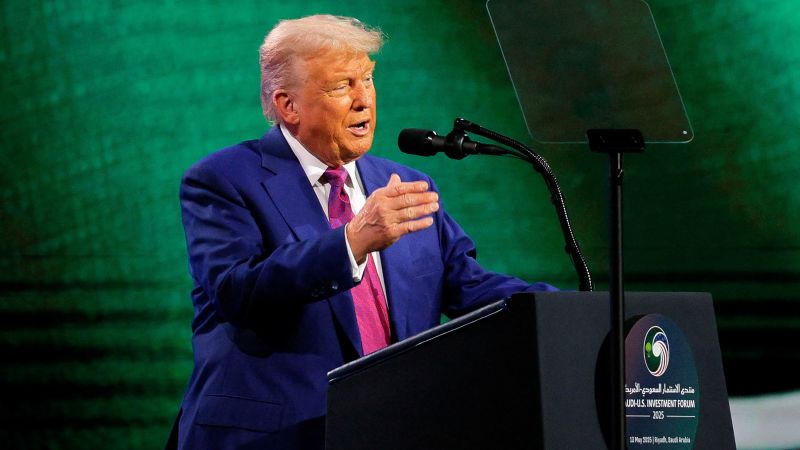On a significant Tuesday, President Donald Trump made headlines with his bold announcement regarding Syria. He revealed his intention to lift sanctions that have affected the nation heavily since the fall of the Assad regime, which occurred last year. During a speech at a Saudi investment forum held in Riyadh, Trump characterized the decision as a move that would “give them a chance at greatness.” This statement indicates an optimism for a hopeful future for Syria, a country long plagued by violence and hardship.
Trump elaborated on his decision, emphasizing that it came after discussions with prominent leaders in the region, including Saudi Crown Prince Mohammed bin Salman and Turkish President Recep Tayyip Erdogan. These conversations reflect a deeper diplomatic engagement with key players in the Middle East, highlighting Trump’s strategy to reshape relations not only with Syria but also within the broader geopolitical context of the region.
In his remarks, Trump spoke candidly about the extensive violence that Syria has endured over the years, stating, “Syria, they’ve had their share of travesty, war, killing in many years.” He noted that his administration is taking steps toward restoring normal relations between the United States and Syria for the first time in over a decade. Importantly, he mentioned that Secretary of State Marco Rubio is anticipated to meet with Syria’s foreign minister in Turkey “later this week,” further underscoring the urgency and seriousness of his diplomatic efforts.
The context of these events cannot be understated; the Assad regime fell amidst a backdrop of brutal rule during the Biden administration, which began in December. The subsequent leaders in Syria have been hopeful about the potential for normalized relations and the lifting of sanctions, which they believe would facilitate recovery and rebuilding in the war-torn nation. The sanctions have long been seen as debilitating forces hindering Syria’s ability to recover from its crises.
Reflecting on the long-term implications of the sanctions, Trump acknowledged their severe impact, calling them “brutal and crippling.” However, he also emphasized the importance of moving forward: “But now it’s their time to shine.” This statement encapsulates a dramatic shift in philosophy, suggesting a change in the United States’ approach to foreign policy and the goal of fostering constructive growth in a nation that has faced immense challenges.
Expressing a sense of optimism, Trump stated he hopes that the new Syrian leadership will achieve stability and peace within the country. New President Ahmad al-Sharaa has a complex history, having founded a militant group known as Jabhat al-Nusra, which was affiliated with al-Qaeda. However, there was a significant shift in his trajectory in 2016 when he distanced himself from the terror group, indicating a maturation in leadership that might contribute to more stable governance.
As part of a broader diplomatic gesture, Trump is anticipated to have an informal greeting with al-Sharaa in Riyadh on Wednesday, a development that could potentially symbolize a thaw in relations and the beginnings of collaborative efforts between the two nations.
The significance of these unfolding events extends beyond mere policy adjustments; they offer a potential path toward reconciliation and rebuilding for Syria. Should these initiatives bear fruit, they could pave the way for a new chapter for both countries, promoting stability in a region often characterized by turmoil and conflict. Ultimately, Trump’s decision reflects a significant pivot in U.S. foreign policy, one that acknowledges the potential resilience and recovery of Syria in the face of decades of hardship.



